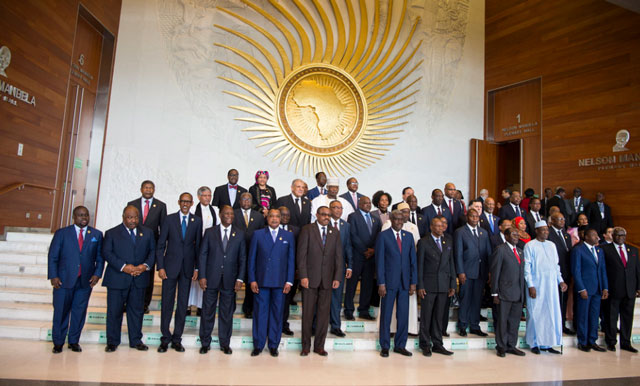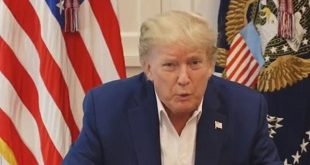
How prejudice has blinded us from seeing the reality of the politics right in front of our eyes
THE LAST WORD | ANDREW M. MWENDA | Recently, a friend sent me a video of former Ghanian president, Jerry Rawlings, telling his experience as a former president to an Italian journalist. He says his wife had an ailment which could not be cured in Ghana and needed foreign medical attention. He had known of the ailment and had saved $20,000 for her treatment. However, to pay the hospital abroad, he needed a foreign bank account, which he did not have. The medical bill turned out to be double his savings. So, he had to go to London to borrow money from a friend ($20,000) to treat his wife in Switzerland.
Rawlings ruled Ghana for close to 20 years. His successor, John Kufuor, believed Rawlings had stolen a lot of money while president and banked it abroad. Therefore, the government refused to provide any help for his wife’s medical bills.
Sadly, like many African elites, Rawlings failed to draw lessons from his experience. In the interview, he quotes someone who said he (Rawlings) was the only African leader without a foreign bank account. This may be flattering to Rawlings but I think they are many African presidents who did not steal money or have bank accounts abroad.
I once watched a video interview of Uganda’s former president, Idi Amin, telling a Western journalist that he had never held a foreign bank account. He said he did not make any money as president and was then living on the charity of the government of Saudi Arabia. Very many former presidents of African countries like Thomas Sankara, Julius Nyerere, Kenneth Kaunda, Samora Machel, Mohmed Buhari, etc. left office with no riches at all.
I had a personal experience was with Uganda’s other former president, Milton Obote. I have a video of a UK television journalist claiming that Obote stole $600 million. When President Yoweri Museveni and his acolytes took power, they made this claim, saying before leaving the country in 1985, Obote went to the central bank and withdrew $600 million and fled with it. Given that Uganda’s GDP at the time was about $2.4 billion (after adjusting for the fixed exchange rate of the time and then adjusting to inflation), this would have been 25% of total national output. Uganda did not have such cash.
On my many visits to Obote in Lusaka, I encountered a man who was living in conditions of extreme economic deprivation. His clothes were aged, the state residence the government of Zambia had given him was dilapidated and the furniture broken. In an autobiographical interview he told me how he ran from Uganda and entered Kenyan penniless, the only money his entourage had was $800 belonging to his personal doctor. Obote lived on the charity of friends and well-wishers as the government in Kampala claimed he was rich.
Nearer home, in 2014 and 2015, Monitor and Observer newspapers published stories on how highly indebted our Members of Parliament (MPs) were. One story said over 50% of MPs were not earning any salary as it would be cut at source to pay money lenders. Another 30% of MPs were receiving less than 50% of their wages, the rest going to pay loans. Only 10% of MPs were getting their full salary. I do not think the situation has since changed.
Yet during his speech in Addis Ababa in July 2015, former U.S. president, Barack Obama, gave his characteristic prejudiced view of African leaders. Speaking before an audience of equally prejudiced African elites, who admired him purely for racial reasons, Obama wondered why African leaders don’t like to leave power “when they have made so much money.” The assembled African elites cheered this fellow “black man” in loud admiration.
It is incredible how prejudices can blind people even to the reality before their eyes. There is a widespread assumption among Africa’s elites and their admirers in Western media, academia and diplomacy that our leaders are in the business of politics to enrich themselves. This belief may reflect the circumstances of some political leaders. Yet I am inclined to believe these would be very few. For the most part, there is overwhelming evidence that many leaders in Africa who left office went into financial obscurity.
Secondly, I also think that many of our politicians in government actually use their public offices to divert funds from the state to their individual pockets and those of their allies, which is called corruption. But why do they remain financially constrained and sometimes even in debt in spite of these shenanigans? My first time to come to grips with the answer to his question came, ironically, from a Western Journalist, Michela Wrong.
Although she was later to disgrace herself by writing a propaganda dirty job book on President Paul Kagame of Rwanda, her book on former DRC president, Mobutu Sese Seko, was insightful. The book, In the Footsteps of Mr. Kurtz, begins with Mobutu as a “powerful African ruler” who rules DRC (then Zaire) as a colossus. But as Wrong weaves the story, one is moved from hostility to pity of this African “strongman.”
Mobutu took a lot of money from the Zaire treasury, Wrong agrees. But it was not for his personal enrichment even though that was the most visible form expressed through his lifestyle of chartering concords, living in luxury mansions, drinking champagne etc. The main purpose was to buy the loyalty of the different powerful ethnic, regional and religious elites through whom he ruled Congo. As the story snakes through the intricacies of Congolese politics, one begins to see Mobutu, not as a predator but as prey for those Congolese elites. Revulsion and hostility turn into pity.
Just like Mobutu, I am sure many of these elites kept their power by distributing favours to those below them – the mechanism cascading downwards in a reciprocal arrangement. They may cream off some share of the “loot” for themselves. But most of it goes to sustain the web of relationships they cultivate that keeps them politically powerful and influential. What we call corruption is therefore a form of political currency; a method through which elites in poor countries are able to build and sustain governing coalitions.
I once thought this system is used because it is efficient in building and sustaining political support. Now I believe it is used largely because it is the only affordable method given the revenue constraints our nations face. I am avoiding moral judgements here and stating the reality of the situation. African intellectuals need to stop regurgitating Western prejudices about Africa. They need to develop insights based on the reality of how political power is organised, distributed, exercised and reproduced in our poor countries.
****
amwenda@independent.co.ug
 The Independent Uganda: You get the Truth we Pay the Price
The Independent Uganda: You get the Truth we Pay the Price



The analysis of the story may be true to Some extend. Some Parliamentarians who have been dropped are now poor like any other local person yet they have been in Parliament for more than one term . There is a believe that MP’s earn a lot of money. So the question is where is the problem?
Thanks Andrew for revisiting past African leaders and their financial indiscipline. The truth is: the root cause of your narrative is the culture of poverty.
The typical culture of poverty is compulsion and/or lack of personal financial discipline or moderation, which unfortunately translates or is automatically institutionalized by those “willfully” in position of power. Look at the way president Museveni and now-a-days Prime Minister Mabanja compulsively throw good money at poverty (poor people) a concealed bribery in buying popularity.
E.g., with nowhere to go, why should the Speaker of Parliament and her Deputy be bought Shs.2bn worth Mercedes Benz, which even the German Chancellors never get to ride in? Look around and see the types of motor vehicles our MPs drive.
As a result of personal financial indiscipline, when they are voted out of office or prematurely die; the empire collapses in less than 2 years. E.g. look at the size of the house the former Speaker of parliament, Rt Hon Jacob Oulanya (RIP) put up in Omoro District: it is a financial disaster sic, the impoverishing proverbial White Elephant for his survivors.
1. Why should a former President of an African Nation be poor?Is it because the citizens they lead are people therefore it should be reflected in life style?Actually a president who lives in pomp attracts more investors from Nations like Russia and China and of course the “Traditional nations and good boys” like Britain and USA will pretend and first threaten you with democracy and human rights meanwhile they secretly also want to trade with you.
2.Its just natural that a President is not an ordinary person they have alot of Social and Economic capital that they have access to.
3.Politicians always have an expiry dates;A time comes when everyone tells you “Out of my sight”
4.Isabel Dos Santos the former first Daughter of Angola is an Engineer,lived and studied in Britain and is one of the richest woman in the World .Of late; she was accused of corruption by the international press which i think is not true;First of all she is educated;anyone who deals in the telecommunication ,High end hospitality and oil business can not be poor.besides that its not her fault that she used her social capital to acquire business deals.
5.I dont know why when someone falls from grace to grass it makes their day.No leader will wait to be laughed at.
6. Every region has a season when it shines. During the Muteesa,Obote and Amin’s era most Baganda,Acholi and Langi lived in affluent places like Kololo,Bugolobi and Nakasero up to now they own property in USA,Canada and Britain you may not find a westerner with property in USA or Britain.What does this imply;every ethnic group in power may out do themselves in the name of their next of kin being in power to be comfortable.
7.The wealth of the Baganda and Luo seem to be earned through education and hardwork which i think was a good thing.
Winnie, think of Confucius’ Philosophy of Moral Order (Social, Economic and Political Order) when he says: “In a country well governed, poverty is something to be ashamed of. In a country badly governed, wealth is something to be ashamed of”.
In other words, if there is peace and tranquility to be realized in China or any society; Confucius was concerned about Justice and/or Fairness, which can be translated into “concern for others”. Whereby in some schools of thoughts and actions, Justice is entitlement, through just acquisition; just transfer and just settlement of disagreement over properties/wealth.
Without these, resentment and conflict, especially the violent ones are inevitable. E.g., those who are least concern for others, easily cause and inflict harm on others. Therefore, unless most of their wealth are acquired through unjust means; why should African leaders and their immediate family members, cronies sic cabal live in opulence and in fear a the same, while their citizens, fellow countrymen, women and children languish in ignorance, unemployment, filth, homelessness, diseases and absolute poverty?
In other words, the problem of Africa is governance (Unjust leaders never wanting to leave power). And governance is nothing but concern for others (citizens), justice or fairness. Nothing less, nothing more. Otherwise, our social economic and political day and nightmares are not going away soon.